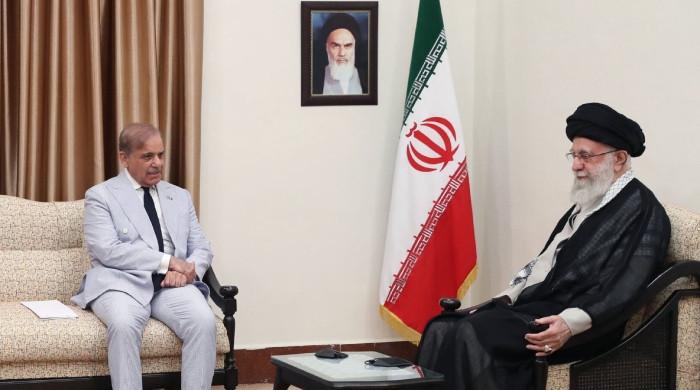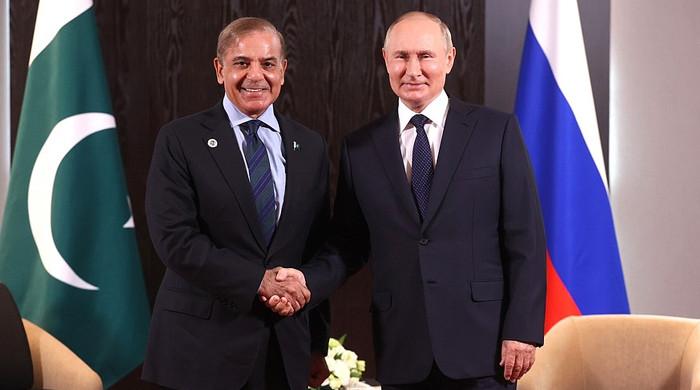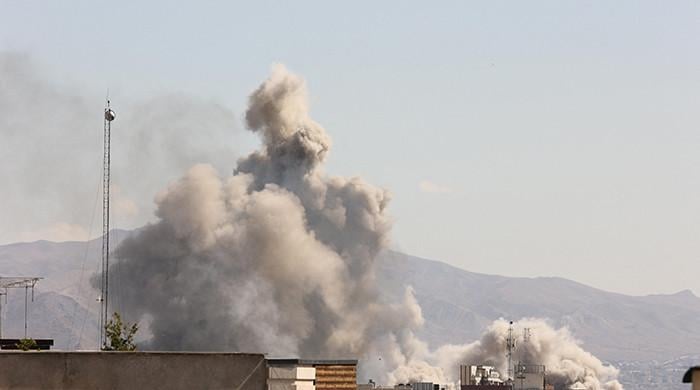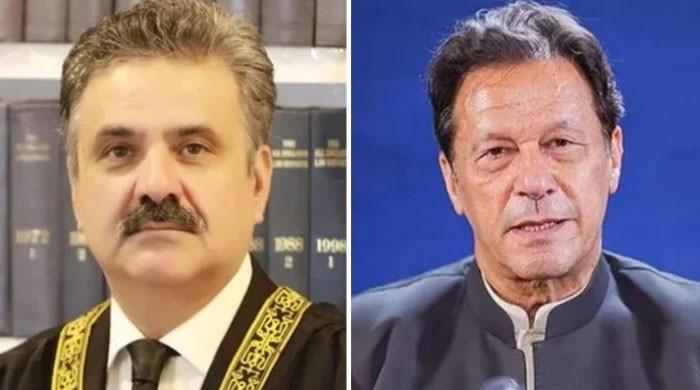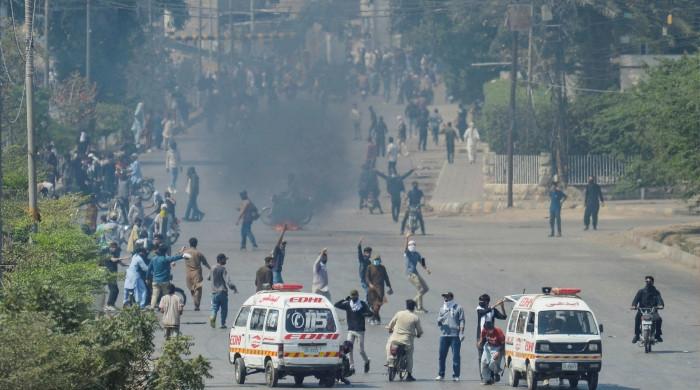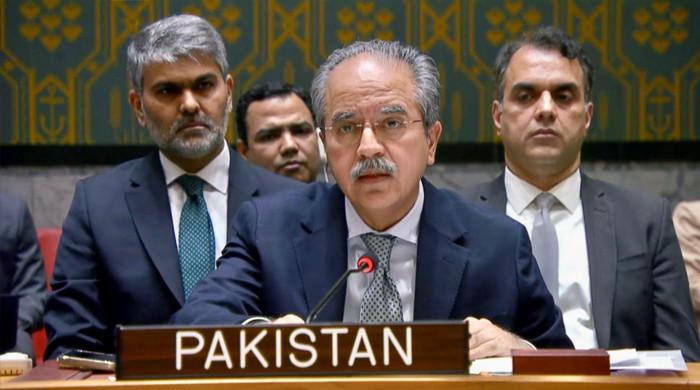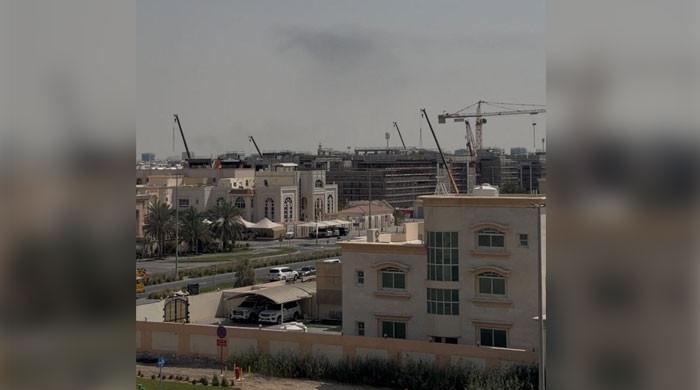Donald Lu highlights irregularities in Feb 8 polls
Declaring Pakistan an important partner, Lu says US committed to strengthening country’s democratic institutions
March 20, 2024
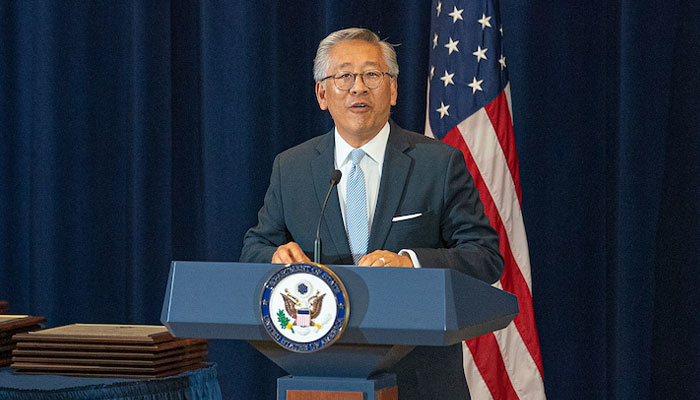
- Donald Lu scheduled to testify today on Pak-US ties.
- House Foreign Affairs Subcommittee hearing to start at 7:15pm.
- State Dept official files written statement ahead of hearing.
WASHINGTON: Assistant Secretary of State Donald Lu has highlighted irregularities that took place during the February 8 polls, and expressed the United States' commitment to strengthening Pakistani democratic institutions.
Lu will appear before a Congressional panel today (Wednesday) that has called a hearing on Pakistan.
The hearing titled ‘Pakistan After the Elections: Examining the Future of Democracy in Pakistan and the US-Pakistan Relationship,’ has been announced by the House Foreign Affairs Subcommittee where the assistant secretary will be a key witness.
In his written testimony, which was uploaded Tuesday by the subcommittee on its website, Lu raised a number of issues concerning the two countries and what lies ahead for US policy in Pakistan.
He mentioned that the State Department had issued a clear statement the day after the general elections in Pakistan last month, noting undue restrictions on the freedoms of expression, association, and peaceful assembly.
The department, Lu pointed out, condemned electoral violence and restrictions on human rights and fundamental freedoms, as well as attacks on media workers and restrictions on access to the internet and telecommunication services.
They also expressed concern about allegations of interference in the electoral process and asked for claims of interference or fraud to be fully investigated, he said.
"We were particularly concerned about electoral abuses and violence that happened in the weeks leading up to the elections," he stated, adding, "First, there were attacks against police, politicians, and political gatherings by terrorist groups. Second, many journalists, particularly female journalists, were harassed and abused by party supporters. And several political leaders were disadvantaged by the inability to register specific candidates and political parties."
He also mentioned that on the day of the elections, an internationally respected local election monitoring organisation said that they were barred from observing vote tabulation in more than half of the constituencies across the country.
"And despite a high court instruction not to interrupt the internet service on election day, authorities shut down mobile data services, the principal means by which Pakistanis access social media and messaging applications," he said.
Progress in participation
But all was not bad according to the assistant secretary, as he also identified positive elements in the Pakistani general elections.
"Despite threats of violence, over 60 million Pakistanis voted, including over 21 million women. Voters elected 50% more women to parliament than they did in 2018. In addition to a record number of women candidates, there were record numbers of members of religious and ethnic minority groups and young people running for seats in parliament."
Voters in Pakistan had a choice, he stated in the testimony.
"A range of political parties won seats in national and provincial assemblies. Three different political parties now lead Pakistan’s four provinces. More than 5,000 independent observers were in the field. Their organisation’s conclusion was that the conduct of the election was largely competitive and orderly, while noting some irregularities in the compilation of results," he said.
US policy going forward
Declaring Pakistan an important partner, the senior official said that the US shares a commitment to strengthening the country’s democratic institutions, supporting the US-Pakistan Green Alliance Framework, cooperating to counter terrorist threats from groups like Al-Qaeda and Daesh, and bolstering respect for human rights, including religious freedom.
Lu said Washington plays a critical role in promoting economic stability in Pakistan.
“We have been one of the most important investors in critical infrastructure over the 76 years of our partnership. For example, the US government is refurbishing the Mangla and Tarbela dams that provide electricity to tens of millions of Pakistanis.”
He added that the US support for Pakistan over the last many decades has been in the form of development grants, private sector investment and humanitarian assistance during periods of greatest need, including the recent catastrophic flooding.
"Unfortunately, Pakistan is facing mounting debt challenges after the past decade of elevated borrowing, including from the PRC," he said, warning that this year, nearly 70% of the federal government’s revenue is expected to go to payments to service this massive debt.
Pakistan needs economic reforms and private sector-led investments that will deliver economic growth for the Pakistani people and not dig their government deeper into debt, Donald Lu said in his testimony.




